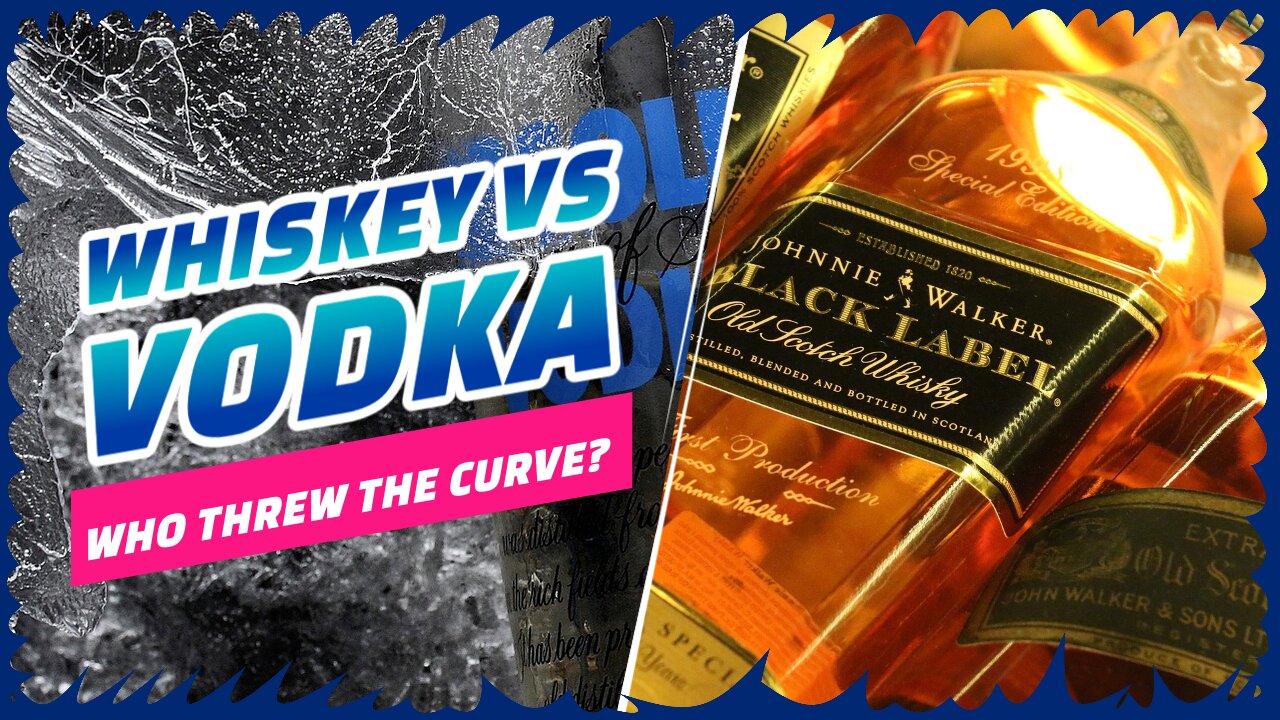Premium Only Content

Vodka Vs Whiskey: An Exploration of Distinctive Spirits #realtalk
hiskey often directly influence the flavor of the final product, providing it with unique characteristics.
Distillation and Production
The production processes of vodka and whiskey are markedly different, further enhancing their unique qualities. Vodka is distilled at a high proof, often above 190, to ensure that it is as pure and neutral as possible. It may also go through multiple distillations and is often filtered through activated charcoal or other materials to remove any remaining impurities or flavors.
Whiskey is distilled at a lower proof, often between 160 and 190, which allows it to retain the flavors and characteristics of its ingredients. After distillation, whiskey is usually aged in wooden casks, often made of charred white oak. This aging process can last anywhere from a few years to several decades, allowing the spirit to develop complex flavors and a distinctive color.
Flavor Profiles and Variations
Vodka is known for its neutrality. The ideal vodka has little or no distinct flavor, other than the generic "burn" of alcohol. This makes it a versatile mixer in cocktails and other beverages. Whiskey, however, is celebrated for its complex flavor profile, which can range from smoky, peaty notes in some Scotch whiskies, to sweet and caramel-like tones in many bourbons. The aging process significantly contributes to the flavor, as the whiskey absorbs tannins, lignin, and other compounds from the wood, which add complexity and depth.
Both vodka and whiskey offer variations that further differentiate them. Flavored vodkas, infused with herbs, spices, or fruit, have become increasingly popular. Whiskey also has numerous subcategories, including Scotch, bourbon, rye, and Irish whiskey, each with its own set of regulations and flavor profiles.
Cultural Context and Consumption
Vodka is more than just a spirit in Russia and Eastern Europe; it's a cultural icon. Traditionally consumed neat, often accompanied by pickled or salty foods, vodka is central to many social rituals. In contrast, the whiskey culture involves savoring and appreciating the beverage, often consumed neat or with a splash of water. Whiskey tasting is an event in itself, where the nuances of different brands, ages, and types are explored in detail.
Pairing with Food
While vodka is often enjoyed with pickles, smoked fish, or caviar, whiskey tends to pair well with richer foods like steak, chocolate, or cheese. The complexity of whiskey complements these foods, creating a harmonious dining experience.
Health Aspects and Cost
From a health perspective, vodka contains fewer congeners—byproducts of fermentation—which are often blamed for hangovers. Whiskey, although rich in antioxidants, is also higher in calories due to the residual sugars from the aging process.
In terms of cost, vodka is generally less expensive due to its shorter production process. Whiskey, particularly those varieties that have been aged for several years, can be considerably more expensive.
While both vodka and whiskey are spirits that have captivated the hearts and palates of many, they are as different as the cultures from which they originate. Vodka, with its neutrality and purity, serves as a versatile foundation for mixed drinks, while whiskey, with its complex flavors and aging process, invites a more contemplative enjoyment. Despite their differences, both have found global popularity, and both have their legions of dedicated aficionados. In the end, personal preference reigns supreme, often influenced by cultural background, individual palate, or even the mood of the moment. Cheers to both!
#VodkaVsWhiskey #SpiritShowdown #DistilledDifferences #CulturalSpirits
-
 LIVE
LIVE
I_Came_With_Fire_Podcast
11 hours agoNOC Spy: CIA uses SATANIC RITUAL ABUSE to make SLEEPER Cells
449 watching -
 28:42
28:42
CatfishedOnline
1 day ago $1.15 earnedWoman Insists Morgan Wallen Relationship Isn't a Romance Scam!
13.8K -
 16:25
16:25
TSPLY
1 day agoNew CNN / MSNBC Meltdown Moments Of Getting Mad At Donald Trump In February
18.7K9 -
 8:33
8:33
scoutthedoggie
4 hours agoAirsoft War Games Scotland
12.8K3 -
 4:56
4:56
Kirill MultitoolOfficial
1 day ago $1.81 earnedSurvival TIPS and usefull bushcraft DIY in the wild
33.5K3 -
 27:25
27:25
ArturRehi
1 day agoThis is How Dictatorships are Formed
17.5K4 -
 59:35
59:35
AlaskanBallistics
17 hours ago $0.45 earnedI Love this Gun Episode # 11
12.2K1 -
 1:21:01
1:21:01
BibleUnbound
19 hours agoThe Complete Story of Moses: The Man of God
18K4 -
 15:56
15:56
Chris From The 740
8 hours ago $0.01 earnedFenix LR36R Review: The Most Powerful Light I've Ever Tested!
10.5K1 -
 1:01:47
1:01:47
Wendy Bell Radio
9 hours agoPet Talk With The Pet Doc
18.1K6